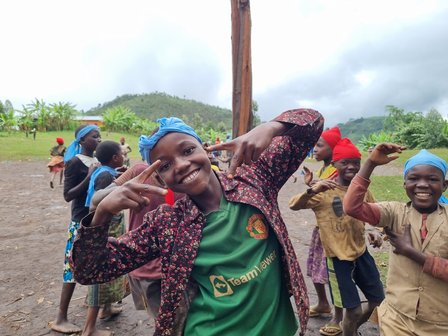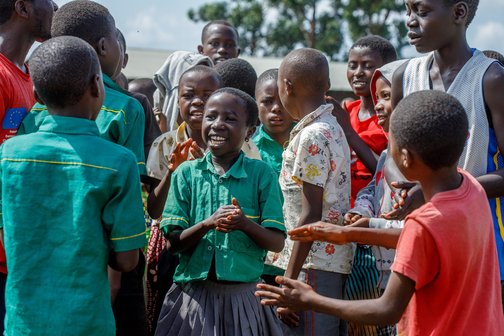TeamUp in Uganda: Restoring childhood and building resilience through movement and play
July 11, 2025
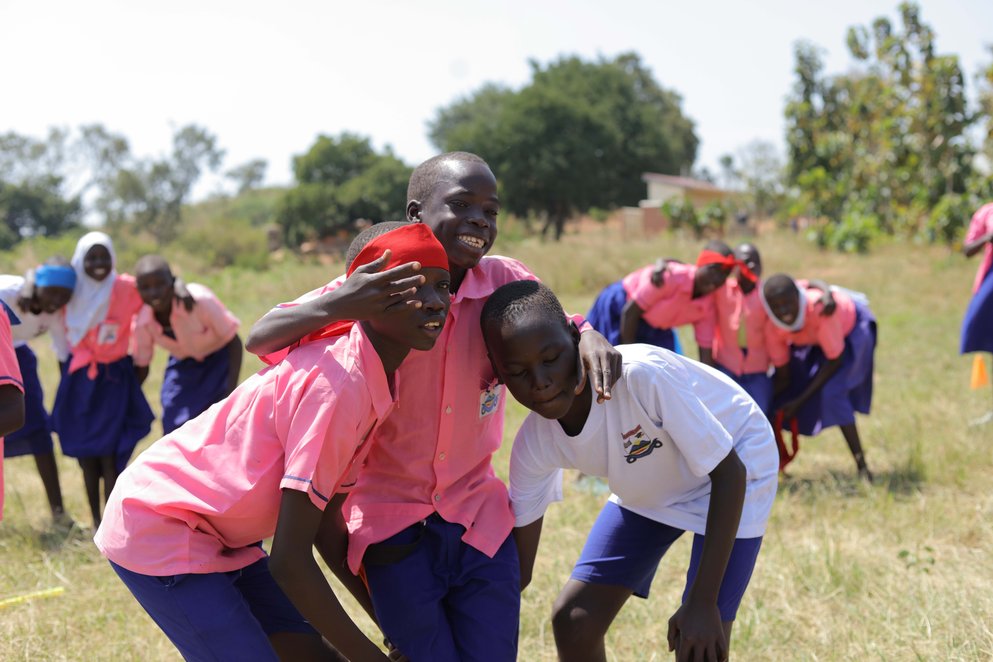
Uganda is home to over 1.8 million refugees and asylum seekers, making it the largest refugee-hosting country in Africa and one of the largest globally. War, displacement, and instability pushed families from neighbouring countries like South Sudan, the Democratic Republic of Congo, Sudan, Burundi, and Somalia to seek safety across the border.
But this journey is just the beginning. Safety may come with distance, but healing takes much longer—what follows is often harder to see, but just as devastating. Children, in particular, carry invisible wounds—grief, fear, loneliness, and memories of violence they cannot put into words.
To address this, War Child introduced TeamUp to Uganda in 2017. TeamUp is an innovative, movement-based psychosocial support methodology co-owned by War Child and Save the Children Netherlands. It supports children aged 6 to 17 to cope with stress, heal from trauma, grow, and reconnect with their childhood.
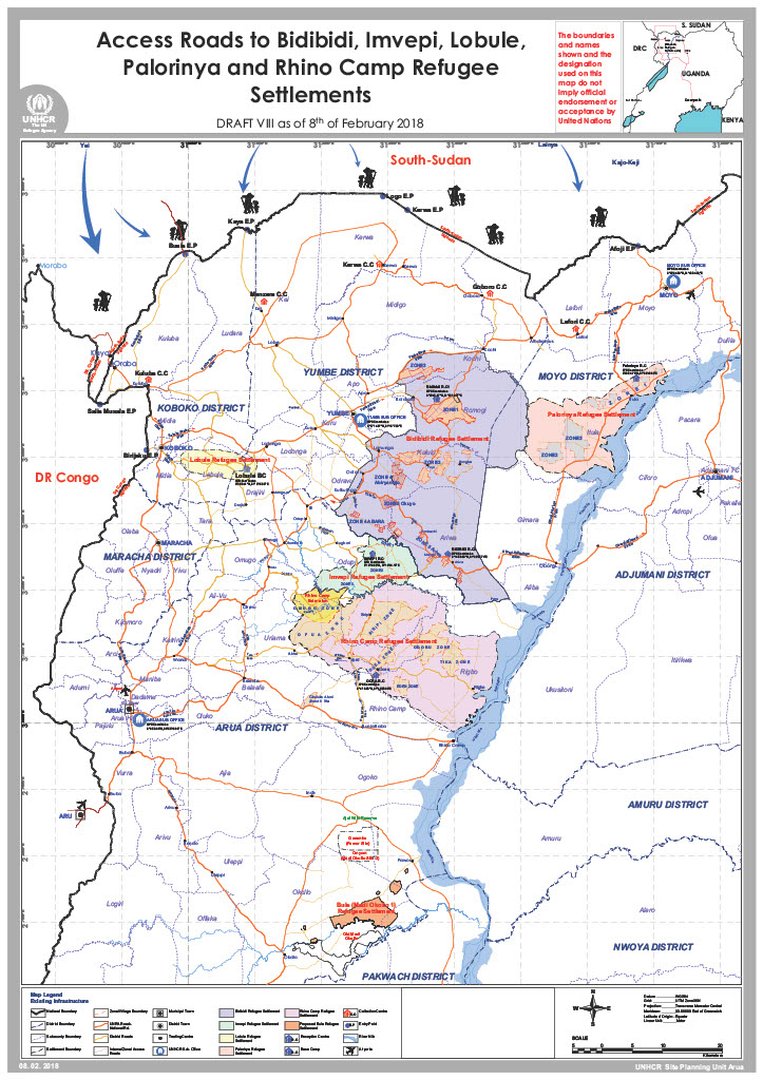
Map of Uganda including access to some of the refugee settlements.
Photo: UNHCR
Since its introduction, TeamUp has been implemented in multiple refugee settlements in Uganda, including Nakivale, Bidibidi, Imvepi, Palorinya, Kyangwali, Kyaka II, Oruchinga, and Kiryandongo.
War Child began the programme in Adjumani District and has since expanded through key international and local partners such as Save the Children, Finn Church Aid, the International Rescue Committee, the Norwegian Refugee Council, Tumaini For Refugee Women, Planning For Tomorrow, Community Consortium Uganda, HopeLink Action Foundation, Similar Ground, as well as generous donors like the Directorate-General for European Civil Protection and Humanitarian Aid Operations and Education Cannot Wait.
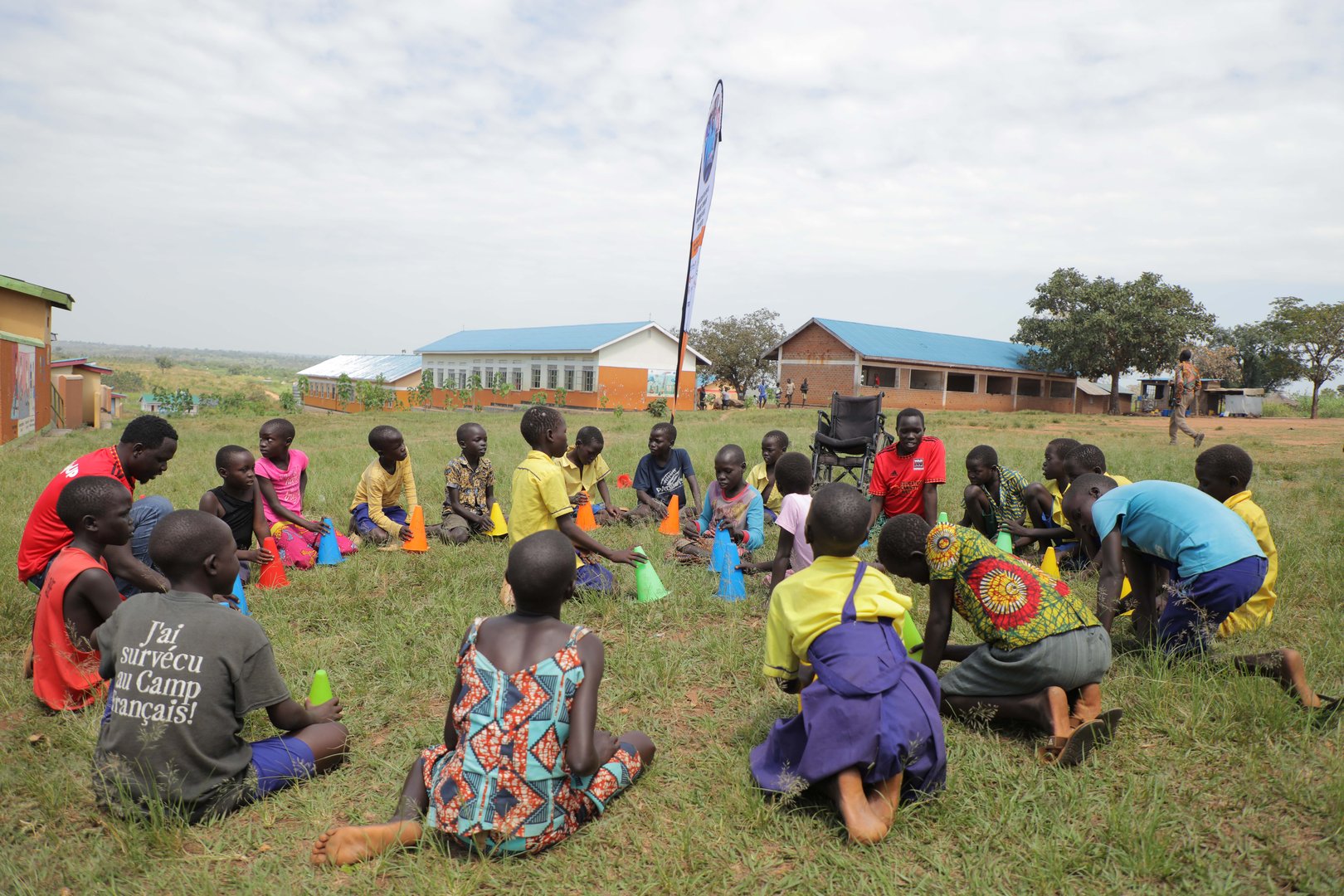
Children participating in a TeamUp activity in the Imvepi Refugee Settlement.
A safe space to be a child again
TeamUp is based on a simple yet powerful idea: structured movement, play, and body awareness practiced in groups help children process emotions, strengthen resilience, and feel safe again. This stability, a structure so rare in the lives of displaced children, becomes a powerful anchor.
Within these sessions of movement and play, children learn how to express emotions, build friendships, and feel seen—without ever needing to speak a word. This is particularly important in a context like Uganda, where refugee children from diverse linguistic and cultural backgrounds live and learn side by side.
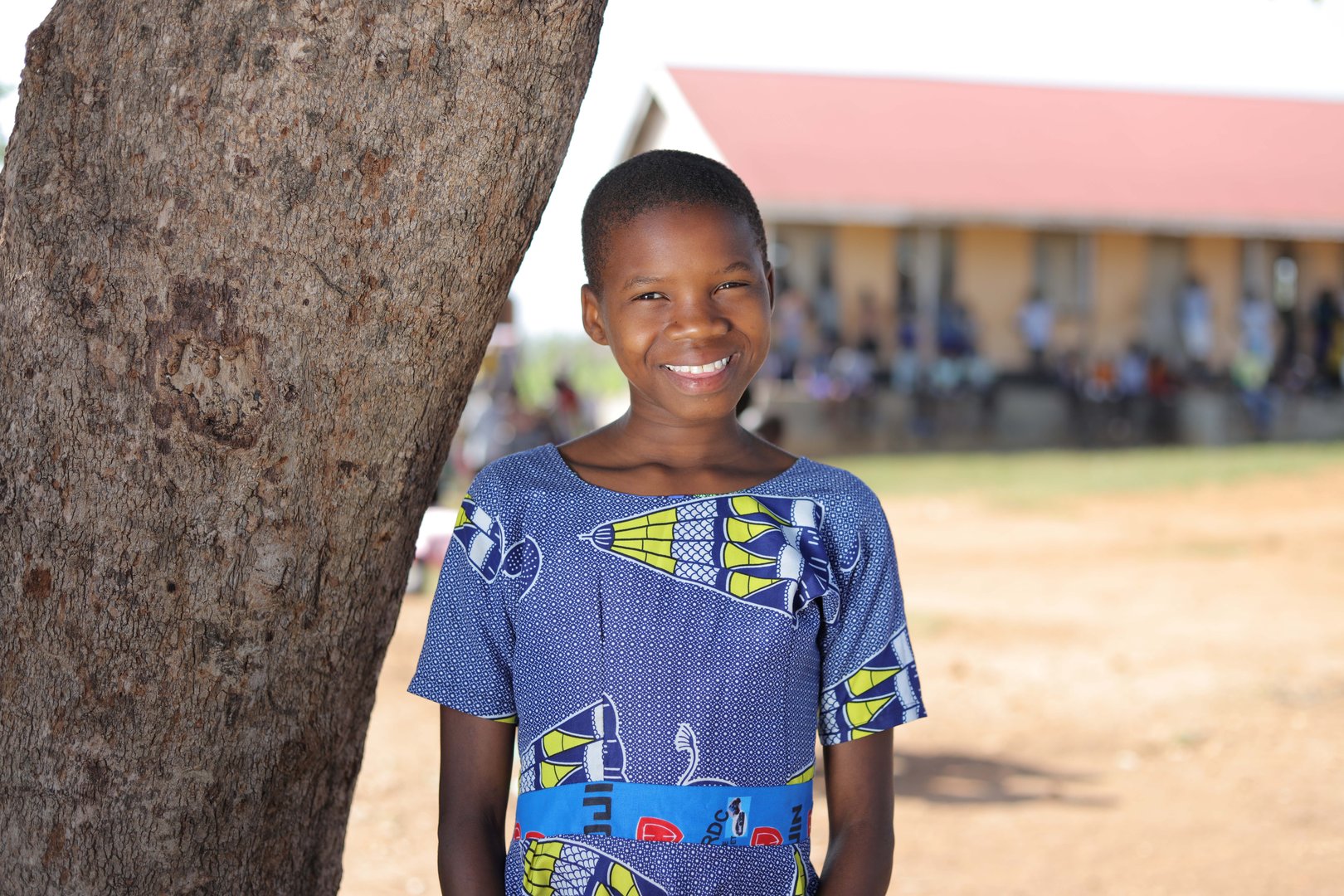
Reem (fake name), student at Equatorial Primary School in the Imvepi Refugee Settlement.
To date, over 183,536 refugee and host community children have participated in TeamUp sessions across Uganda. Each session is carefully designed and facilitated by trained facilitators. Over a series of up to 24 sessions, they adopt a non-judgemental approach, and guide children through routines that promote emotional expression, cooperation, and coping skills.
Facilitators are trained, mentored, and coached by experienced, certified senior trainers, ensuring the consistent delivery of high-quality psychosocial support. Many facilitators also come from the communities themselves, bringing trust, a deep understanding of local dynamics, and a strong commitment to the well-being of children.
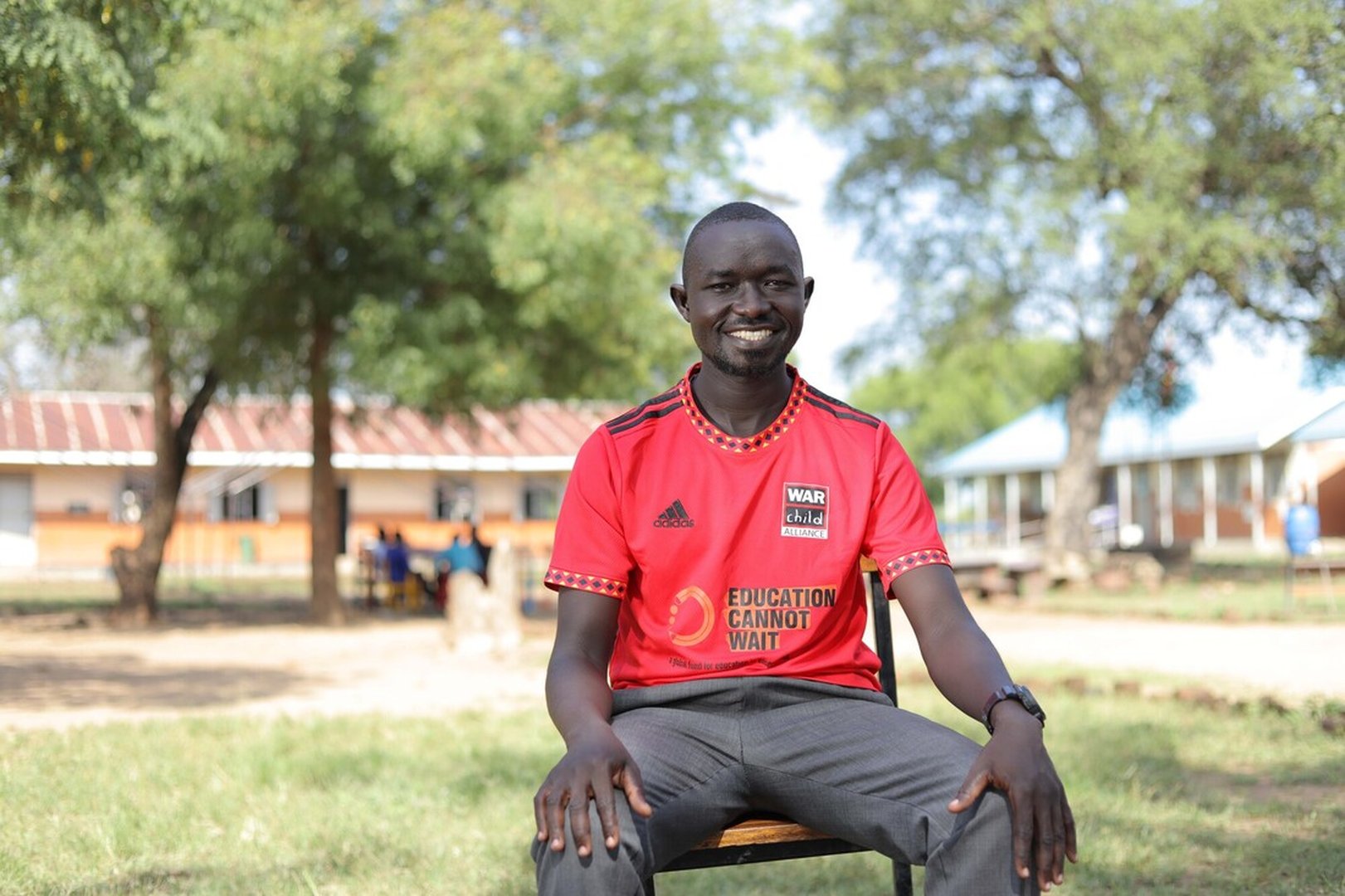
Aduyi Mofart, teacher at Imvepi Primary School, Imvepi Refugee Settlement.
From isolation to belonging
War doesn’t just displace families—it tears apart the social fabric that gives children a sense of identity and safety. In Uganda’s refugee settlements, children often carry both the trauma of conflict and the burden of intertribal divisions.
“We had a big problem of isolated children because of the different tribes in school. It caused so much division and fighting,” shared Waru Aquila, a teacher at Emmanuel Primary School in the Imvepi Refugee Settlement. “Through TeamUp, there is unity now because the games they play promote teamwork and togetherness.”
In these communities, belonging is not just emotional—it’s transformational. TeamUp allows children to feel part of something again. Within each session, they find common ground, build friendships, and reclaim the space to be simply, beautifully, children again.
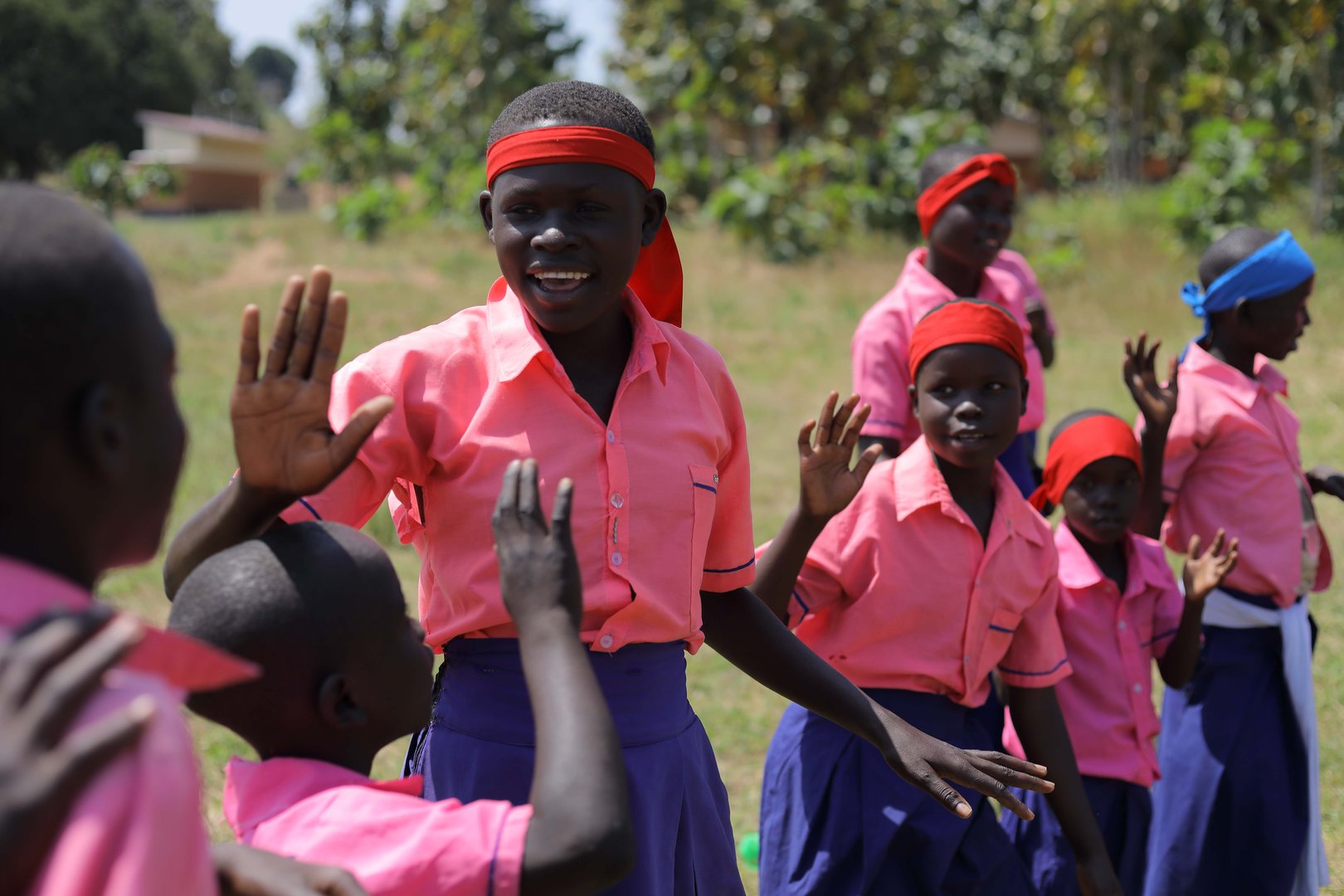
Children interacting during a TeamUp session in the Bidibidi Refugee Settlement.
An evidence-based success
Another key element that sets TeamUp apart is its evidence-based design. Every benefit observed in children is backed by rigorous research. A quasi-experimental study conducted in Uganda between 2020 and 2021, involving four schools and over 500 children, demonstrated remarkable results.
Children participating in TeamUp showed improved psychosocial well-being, school satisfaction, social connectedness and other benefits compared to a control group that was never involved with the methodology.
These benefits also translate into better school attendance and academic performance.
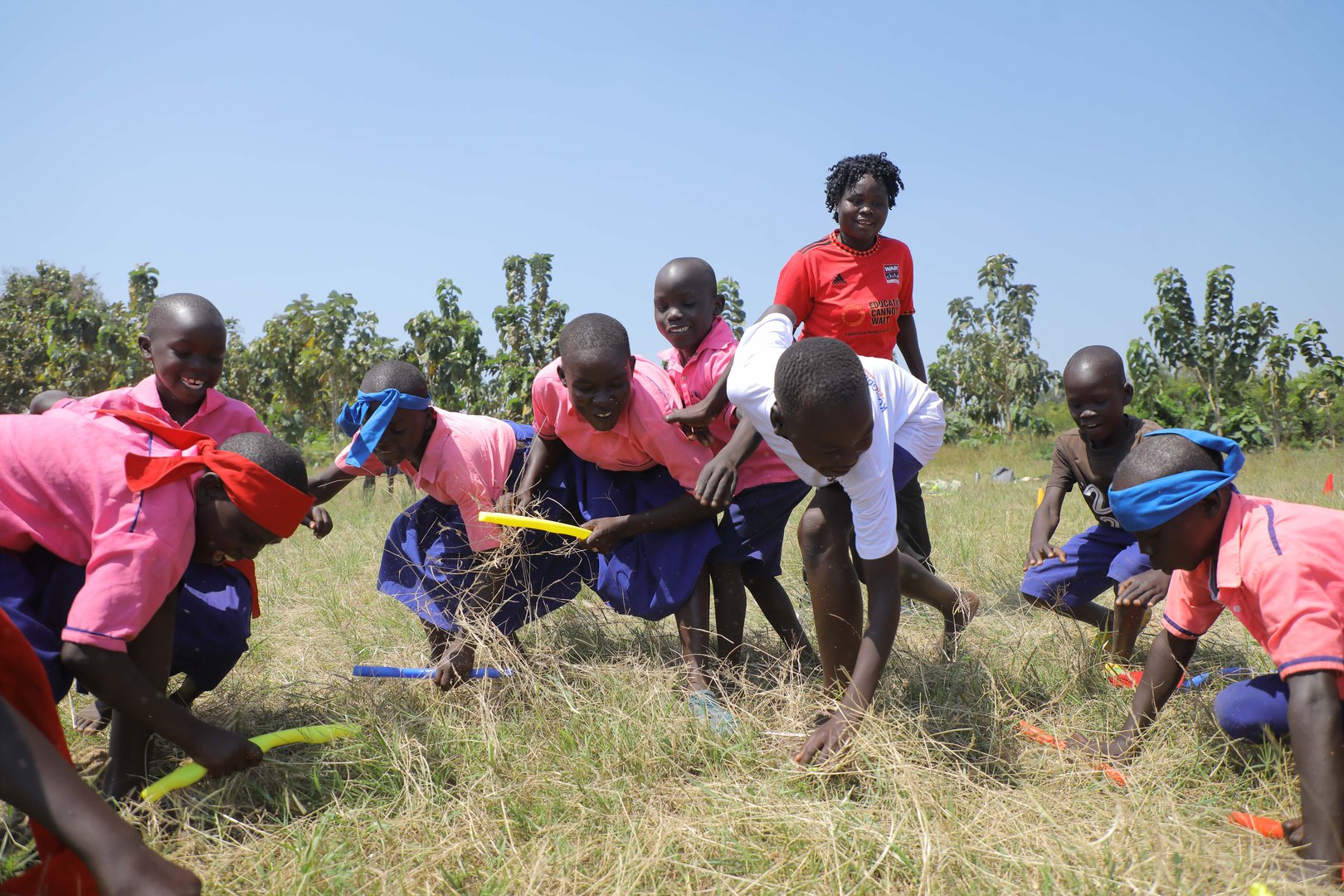
Candiru, teacher and TeamUp facilitator, during a TeamUp activity with students at Komgbe Primary School in Bidibidi Refugee Settlement.
Healing the whole community
TeamUp’s impact reaches far beyond the children. It supports teachers, empowers caregivers, and brings harmony into both classrooms and homes.
“My son lost his father in the war. He used to be so quiet, so sad,” shared Biyika Doreen, a mother from Imvepi. “Lately, I’ve noticed a very big change in my child’s behaviour. Now he easily talks to me when he has a problem, he plays again, and he’s doing better at school. When I asked him why he was so happy, he told me about TeamUp.”
These aren’t just improvements in behaviour—they are signs of healing, resilience, and hope.
Looking ahead
TeamUp continues to grow in Uganda, with new initiatives reaching children affected by the recent emergency influx from the Democratic Republic of Congo. As more children are enrolled, more facilitators trained, and more materials delivered, the programme adapts to meet growing needs—bringing structure, connection, and healing where it’s needed most.
In a world that too often overlooks the pain of displaced children, TeamUp offers more than a methodology—it offers a lifeline for children navigating the aftermath of displacement and trauma. By restoring play, connection, and emotional safety, TeamUp helps children rediscover the sparkle of childhood they were forced to leave behind.
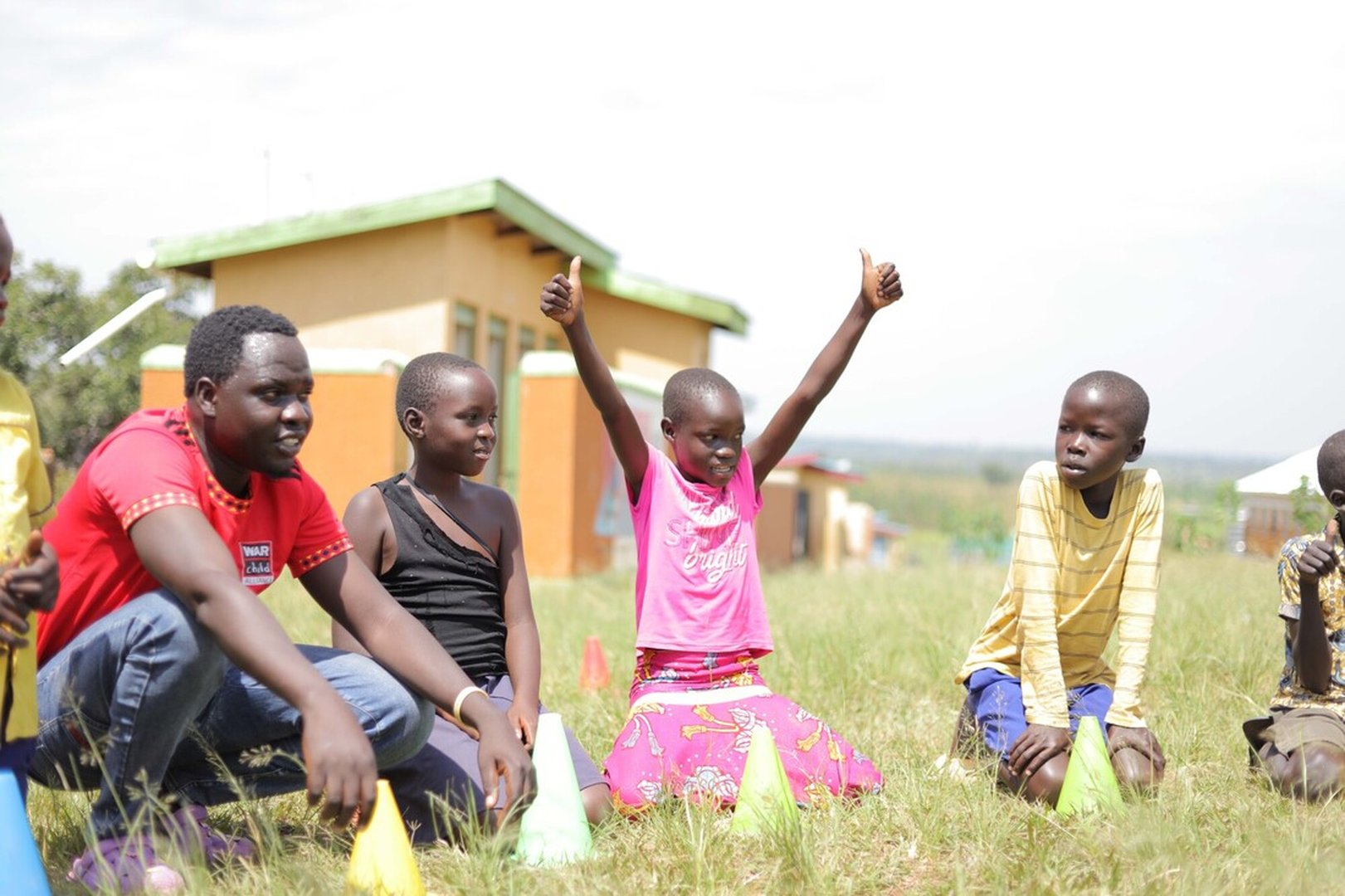
Children and facilitator during a TeamUp activity in the Imvepi Refugee Settlement.
